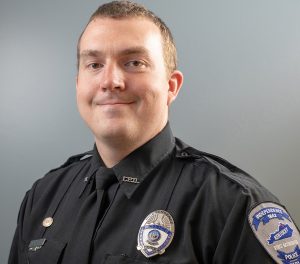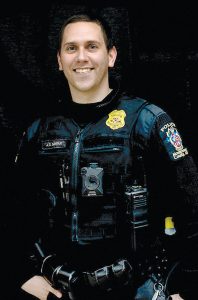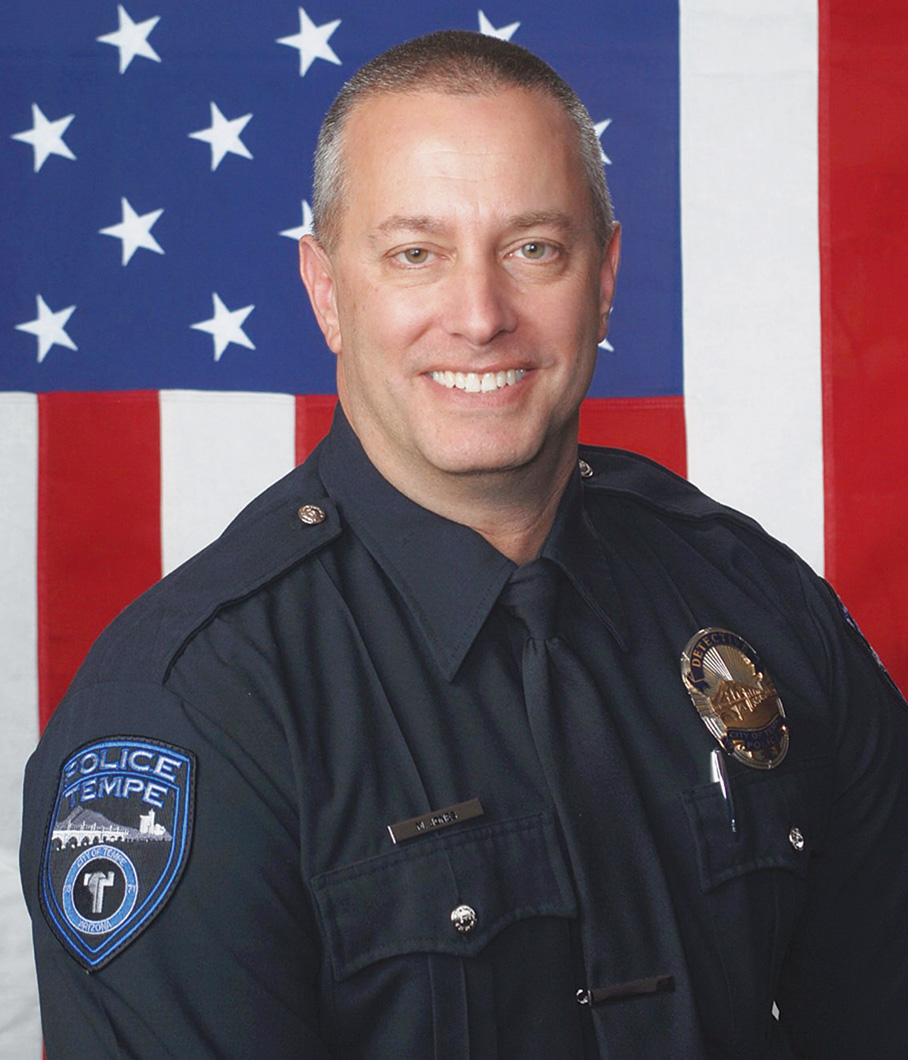
According to the National Institute of Mental Health, nearly one in five U.S. adults lives with a mental illness. Based on the statistic, it’s no wonder that law enforcement professionals frequently encounter individuals struggling with a wide range of mental, behavioral or emotional disorders. Over the years, officers have increasingly become first responders for mental health crises — as many as 10% of police calls involve mental illness.
For example, in 2017, the Sacramento Police Department fielded more than 3,340 incidents related to mental health, according to statistics it provided to the Sacramento Bee. Officials from Johnson County, Kansas, told the Shawnee Mission Post they received a 448% increase in calls from law enforcement agencies for mental health assistance between 2016 and 2017. And Iowa State Police Department Chief Michael Newton confirmed to the Ames Tribune that the agency experienced an 18–20% increase in mental health–related calls between 2016 and 2017.
Many of these cases require law enforcement professionals to be as well-versed in psychology as they are in laws and statutes. The key is recognizing who deserves a mental health intervention versus who should be charged with an offense. It’s this unique intersection that’s the focus of forensic psychology. Traditionally, the specialty has been viewed from a clinical perspective, where practitioners evaluate individuals for competency hearings or child custody cases. However, law enforcement professionals also benefit from an in-depth knowledge of mental health disorders as well as other potential psychological impacts, such as the effects of interrogation and interview techniques. Many in law enforcement are turning to programs in forensic psychology to gain the valuable skills they need to meet the unique and ever-evolving demands of the job.

Officer Daniel Potts, EKU B.S. Forensic Psychology graduate
Degree: Bachelor of Science in Psychology, Forensic Psychology Concentration
Course sampling: Literacy in Psychology; Psychology of Personality; Adolescent and Adult Development
Key components: In addition to studying various fields within psychology, students choosing the forensic psychology concentration have the opportunity to participate in high-level discussions of course material with graduate students through a hybrid curriculum structure.
Faculty insight: “For every topic I teach, I have done as a case as a private practitioner. I often give students my case materials to review outside of class, and in class we talk about them. That makes for interesting conversations.” — Dustin B. Wygant, Ph.D., professor and Clinical Training program director
FOP member takeaway: “I knew I wanted to be a police officer, and I saw a growing trend with officers dealing with individuals with mental illness. I thought double-majoring in criminal justice and psychology would be very beneficial. I liked that the classes and assignments were able to integrate not only criminal justice to psychology, but psychology to criminal justice.” — Kentucky Lodge #75 member Officer Daniel Potts, Independence Police Department, 2013 graduate
 George Washington University
George Washington UniversityDegree: Master of Arts in Forensic Psychology
Course sampling: Psychology and the Legal System; Theories of Criminal Behavior; Investigative Psychology
Key components: Based in Washington, D.C., GWU faculty have developed an expansive network of contacts within numerous government agencies, including the U.S. Secret Service and the Bureau of Alcohol, Tobacco, Firearms and Explosives. Students can tap into these resources for the mandatory externship.

Officer Justin Saffar, GWU M.A. Forensic Psychology graduate
Faculty insight: “People working patrols who encounter mentally ill individuals don’t always understand what they’re looking at. Police officers who come back to school further their advantages, not because they’re getting a master’s degree, but because they’re getting skills they didn’t have.” — Richard A. Cooter, J.D., Psy.D., Forensic Psychology director
FOP member takeaway: “There are a lot of courses taught by experts in their fields. The interview and interrogation class was taught by an FBI agent of 30 years. They had a behavior profiling course taught by a U.S. Marshal who leads the psychology [department] for the entire service. It was nice to talk to them cop-to-cop.” — Maryland Lodge #35 member PO III Justin Saffar, Montgomery County Police Department, 2017 graduate

Detective Matt Jones, UND M.A. Forensic Psychology graduate
Degree: Master of Arts in Forensic Psychology
Course sampling: Behavior Pathology; Human Factors in Cyber Security; Foundations of Behavioral Data Analytics
Key components: The online program was ranked No. 1 among online master’s degree programs in forensic psychology by CollegeChoice.net last year. UND students have access to the same resources, lectures and curriculum as on-campus students. The degree culminates with a capstone project that includes a one-week on-campus experience, complete with face-to-face meetings with instructors
and classmates.
Faculty insight: “We have working professionals in the program, and it’s a unique learning experience for me to hear from them. At last year’s capstone, I learned about their jobs and now I can use that in more practical aspects for classes.”— André Kehn, Ph.D., associate professor
FOP member takeaway: “The main thing that appealed to me was the background of the instructors. I took the time to look at their CVs and the classes they were teaching.” — Arizona Lodge #11 member Detective Matt Jones, Tempe Police Department Homicide Unit, 2018 graduate
Degree: Master of Science in Forensic Psychology
Course sampling: Advanced Correctional Psychology; Quantitative Analysis; Seminar in Courts and Sentencing
Key components: The online advanced degree program has gained national recognition since its debut in 2017. Coursework explores various topics of mental health and human behavior and how they pertain to the criminal justice system, including courts and corrections.
Faculty insight: “We wanted the curriculum to give insight into all angles of the field. We have courses that have come from the law enforcement or criminology perspective, but with the psychological theory behind what goes on. It’s important to understand the needs of people with mental health [concerns] and how judges and juries weigh mental health concerns.” — Nick Schweitzer, Ph.D., associate professor and ASU Program on Law and Behavioral Science director and founding member
Degree: Master of Legal and Forensic Psychology
Course sampling: Forensic Assessment; Legal Reasoning; Violence and Psychopathology; Clinical Interviewing and Treatment
Key components: A collaboration between the Department of Psychological Science and the Department of Criminology, Law and Society, this graduate-level program examines the issues that cross from psychology to the legal realm and back, with a heavy emphasis on research and evidence-based practices.
Faculty insight: “I believe police officers are under enormous pressure of dealing with the public and community safety. They need more resources and support systems, and to have a better understanding of mental health to do the job. The goal is to bring the science to practice and have science drive solutions.” — Elizabeth Cauffman, Ph.D., professor and Center for Psychology and Law director
 Degree: Master of Science in Forensic Psychology
Degree: Master of Science in Forensic Psychology
Course sampling: Cognitive Psychology; Theories of Personality: Intersection of Law and Psychology
Key components: Students test their research and analysis assessment skills as well as develop in-depth understanding of key issues in the forensic concentration, such as eyewitness memory and recall, civil commitment and competency.
Faculty insight: “Law enforcement students are not only exposed to what types of roles forensic psychologists maintain in the justice system and the community, but also gain a more comprehensive understanding of the code of ethics that psychologists abide by.” — Vanessa Holtgrave, Psy.D., adjunct faculty
Click here “A Psychological Perspective” to read more FOP member insights on how forensic psychology degrees can benefit officers.
See this story in the Spring 2019 FOP Journal issue.




